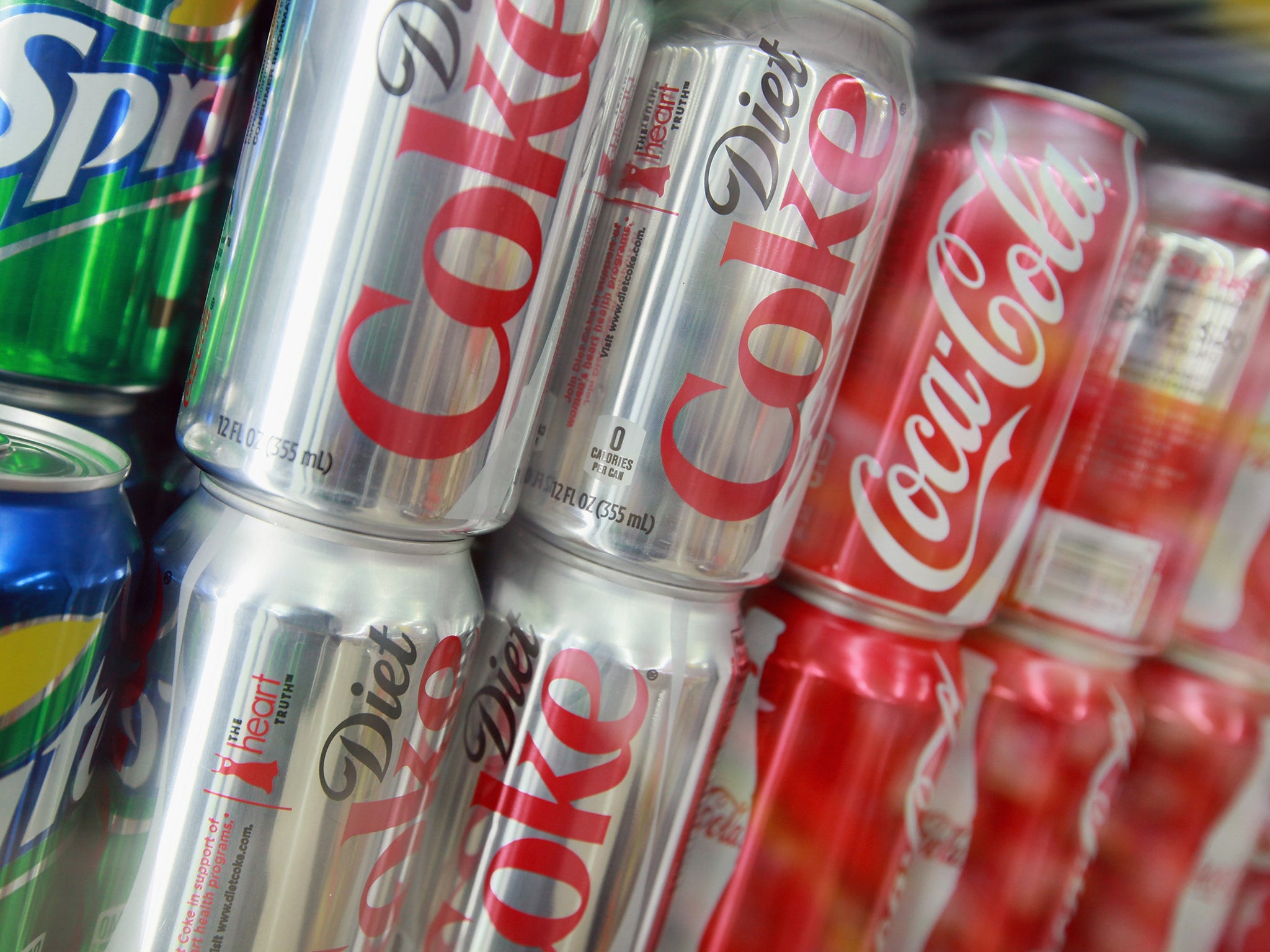Supermarkets should charge extra for junk food and sugary drinks to raise money to pay new 'living wage', says NHS chief
Simon Stevens said it was a way supermarkets could go for 'a double win'

Supermarkets struggling to pay staff the new ‘living wage’ should raise the extra cash by charging more for junk food and sugary drinks, the chief executive of the English NHS has said, as the Government backed landmark new health advice to cut the nation’s sugar intake by half.
Britain’s retailers are expected to increase prices or cut staff numbers to afford George Osborne’s new minimum wage of £7.20 an hour from next April.
However, Simon Stevens, chief executive of NHS England, said supermarkets and other retailers could go for “a double win”: protecting children’s health by raising prices on unhealthy products, and using the proceeds to supplement low incomes.
The bold proposal came as Government health advisors issued final advice that will see the recommended amount of sugar we eat each day cut by half, to just 30g for an adult – less than the amount found in a single can of full fat Coca Cola.
Public health minister Jane Ellison said the Government would accept recommendations from the Scientific Advisory Committee on Nutrition, to cut the recommended amount of daily energy intake we get from sugar to just five per cent, down from 10 per cent. Devolved governments in Scotland, Wales and Northern Ireland also accepted the recommendations, which will now become official dietary advice.
Health officials also called for parents to cut sugary drinks out of their children’s diet.
Mr Stevens, who has called for the country to do far more to prevent ill health and reduce demand on the NHS, supported the recommendations, saying there was “absolutely no reason” why kids should have sugary drinks.
“There’s now a steady drumbeat of evidence showing that sugar and obesity are not only causing cancer but a whole range of other health problems,” he said. “Today’s report underlines that.”
He added that while some retailers and food manufacturers – such as Tesco and Sainsbury’s – were already acting to cut sugar, if others did not follow their example the Government should introduce some form of regulation. However, he stopped short of explicitly calling for a sugar tax, as recommended by the British Medical Association this week.
He said supermarkets could also act in the short term by hiking up the price of unhealthy products.
“Obviously following the Budget, where the Chancellor introduced a national living wage, there was some push back from some of the retailers about the impact that would have on them,” he said.
“I say: why not consider partly funding the cost of the national living wage from higher prices that they charge for sugary drinks and junk food? That would be a double win. It would take pounds off kids’ waist lines and put pounds in the pockets of low income workers.”
However a spokesperson for the British Retail Consortium said that the Department of Health and not raised the idea with retailers.
While market leader Tesco have welcomed the Chancellor’s “living wage” plans, which will see the minimum wage increase to £7.20 from next April, rising to £9.00 by 2020, experts at business analysts Moody’s said this week that retailers may have to raise prices, and supermarkets may have to cut jobs to pay for salary increases.
SACN’s report, ordered by the Department of Health and the Food Standards Agency, examined the latest evidence of links between carbohydrates, sugars, starch and fibre in our diet, and a range of health outcomes.
It confirmed that consuming sugary drinks is leading to unhealthy weight gain in children, as well as increasing the risks of type 2 diabetes.
Professor Ian Macdonald, chair of the SACN working group that produced the report, said the evidence was “stark”.
“Too much sugar is harmful to health and we all need to cut back,” he said. “The clear and consistent link between a high-sugar diet and conditions like obesity and type 2 diabetes is the wake-up call we need to rethink our diet.”
Join our commenting forum
Join thought-provoking conversations, follow other Independent readers and see their replies
Comments